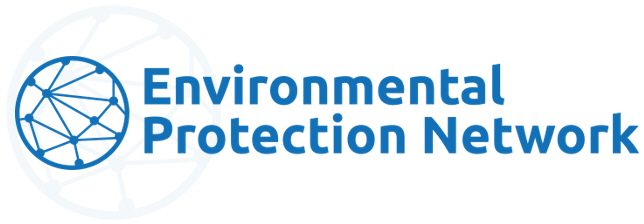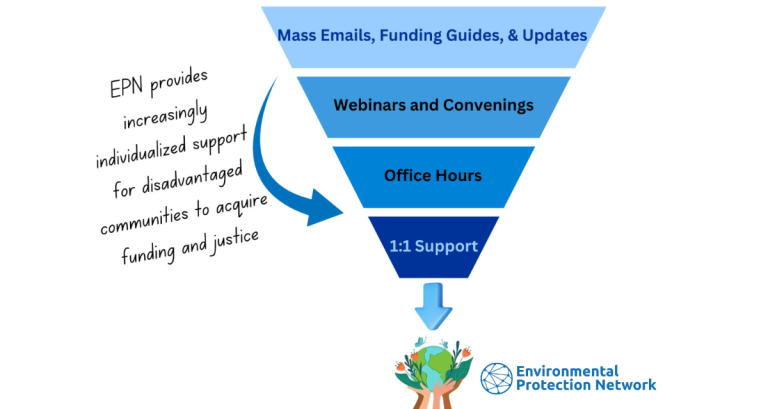The Environmental Protection Network’s (EPN) Pro Bono Capacity-Building Technical Assistance Program aims to help disadvantaged communities, community-serving NGOs, and under-resourced agencies navigate and understand government programs, data, and processes; gain access to partners, allies, and decision-makers; and apply for funding.
Our Community Outreach Team, along with our 750+ EPA alumni volunteers across the country, have assisted on over 2,500 requests for technical assistance on community-identified issues including air quality, safe drinking water, brownfields redevelopment, Superfund cleanups, climate resilience and more.
Specifically, here are some of the resources we provide and how to access or explore them:
- Updates and Guides: We distribute a bimonthly(ish) funding and opportunities guidance email to thousands of our contacts with information about current funding and technical assistance opportunities. You can subscribe here to receive our latest resources.
- Webinars and Convenings: We participate in and host events for specific groups and create opportunities to ask questions, brainstorm ideas, and find potential partners. Email us to join us for, or invite us to, a gathering.
- Office Hours: We provide additional hands-on support to small groups, including the monthly meetings of the Community Air Monitoring Network, which you can request to join here; monthly meetings of the New England Environmental Justice Hub; and twice monthly meetings for federal EJ, climate, and energy grantees. Please reach out if you would like to co-create or suggest additional office hours for your specific interests.
- 1:1 Support: We have a Community Outreach Team who provide one-on-one support to communities on their self-identified needs. Fill out our Inquiry Form to request individualized assistance.
Please note: EPN’s volunteers engage internally with organizations to support and help advance their work, but they do not play public-facing roles, including:
- Speaking to reporters on behalf of communities or NGOs
- Representing communities or NGOs before regulatory agencies or at public meetings
- Appearing as an expert witness
In addition, as volunteers, they do not accept financial compensation for any completed or future work.
Make a request for pro bono Technical Assistance:
Tap/Click the button below to begin completing the Technical Assistance request form. A member of our Technical Assistance team will be in touch with you as soon as possible!
Make a Technical Assistance Request
